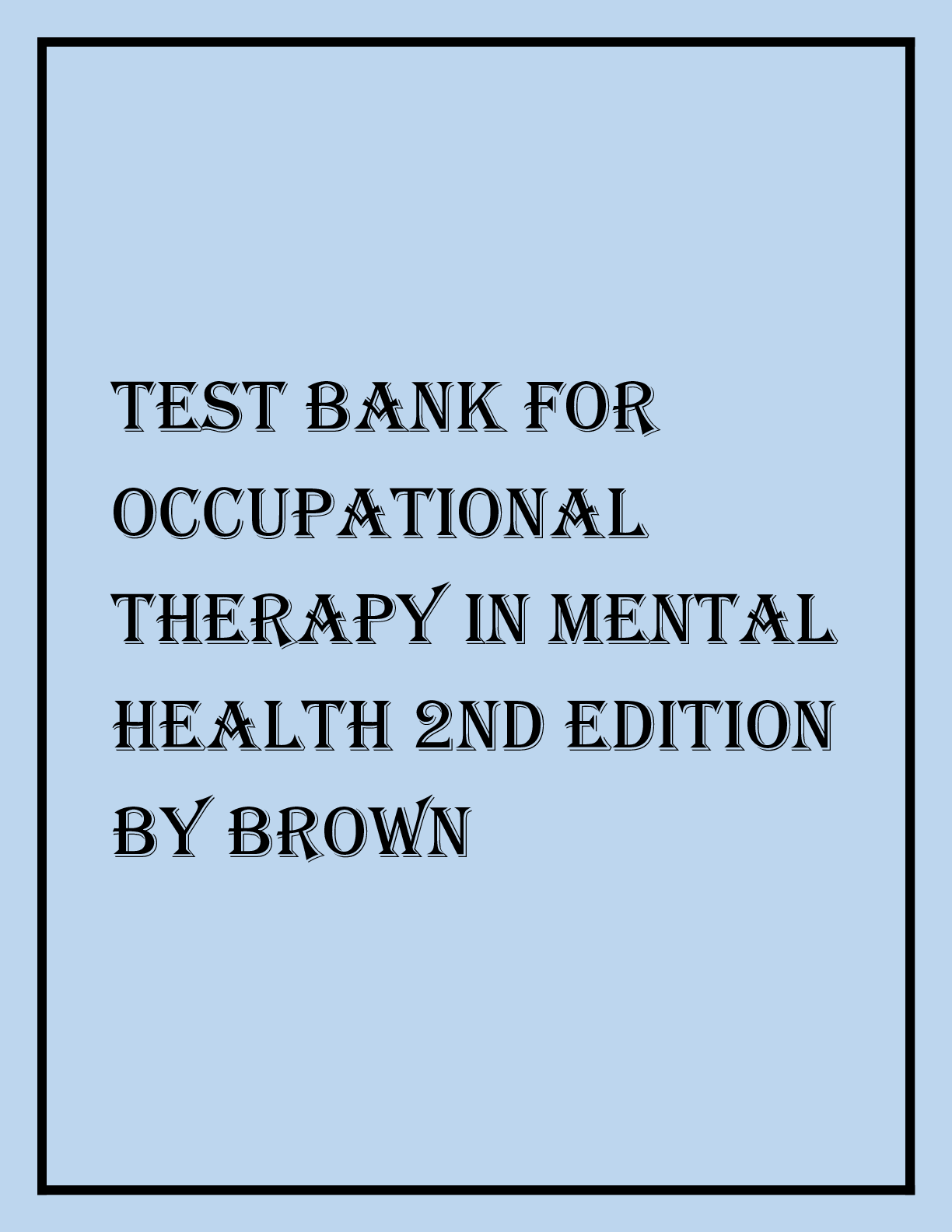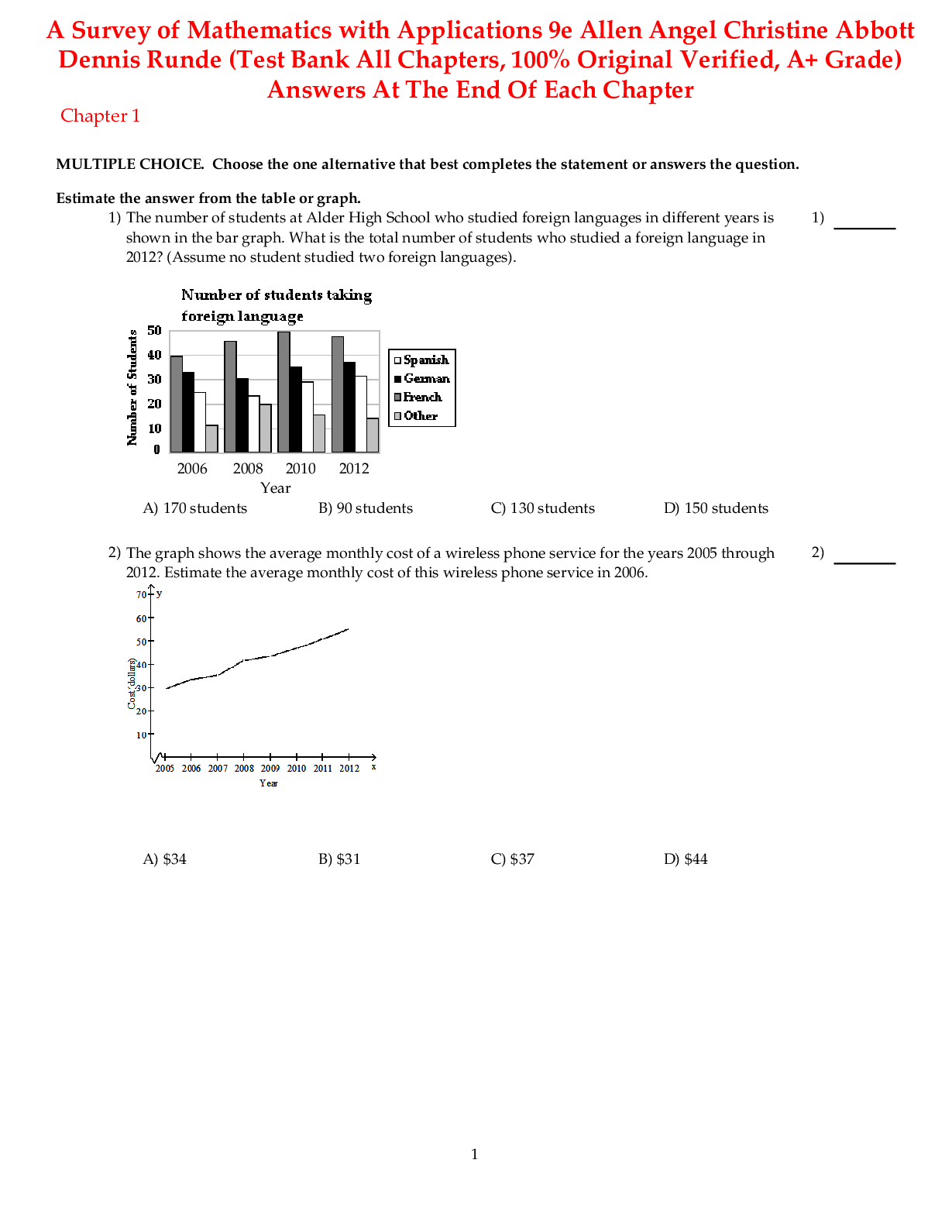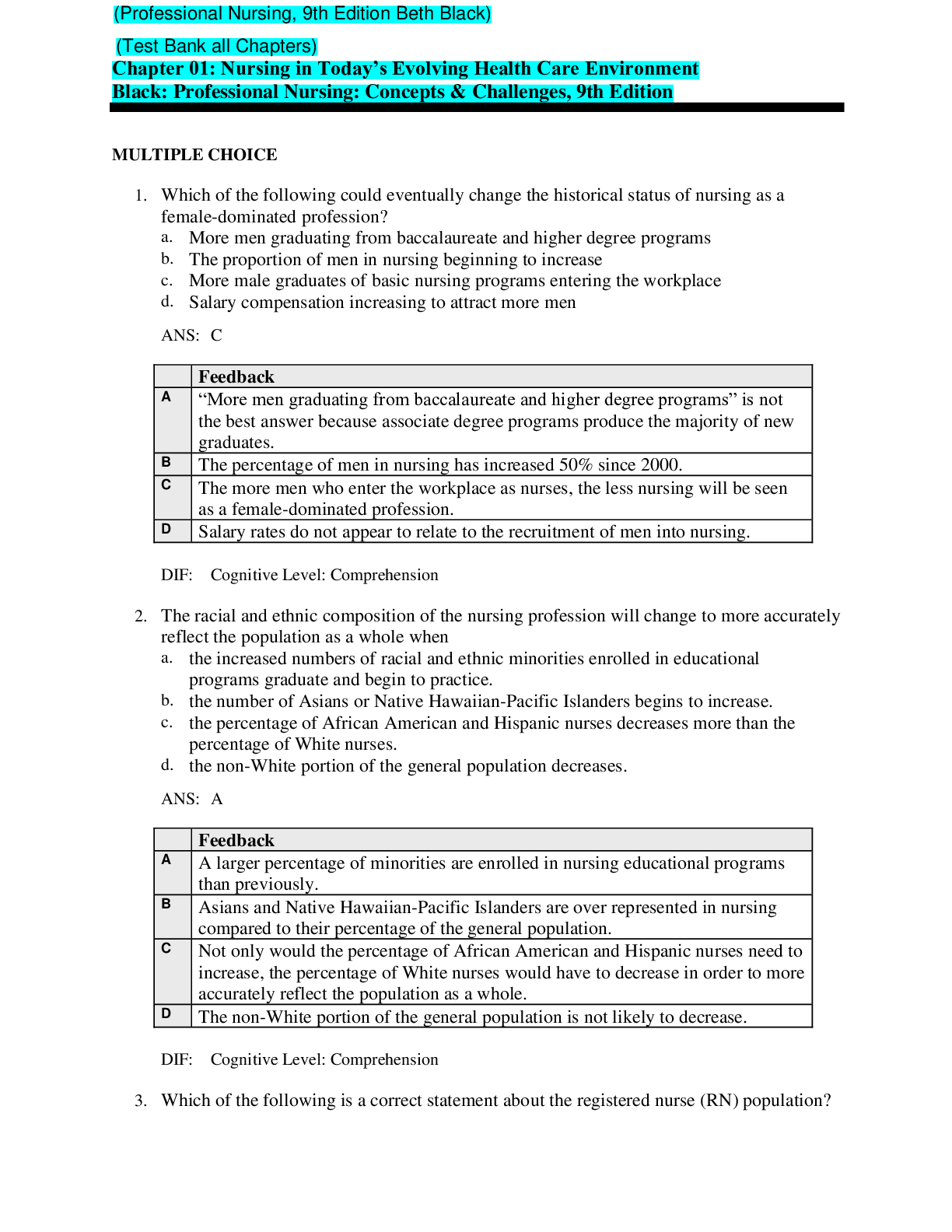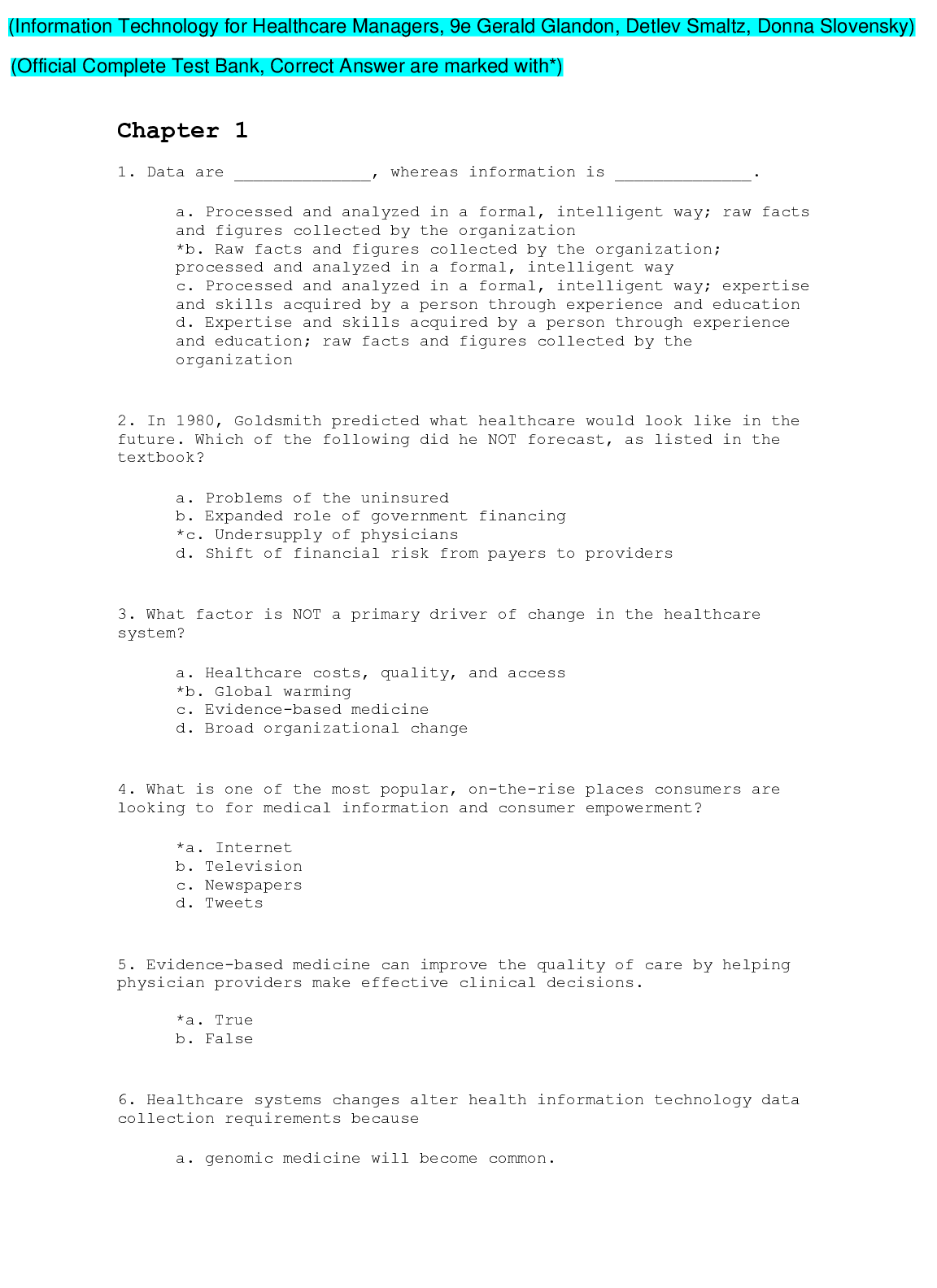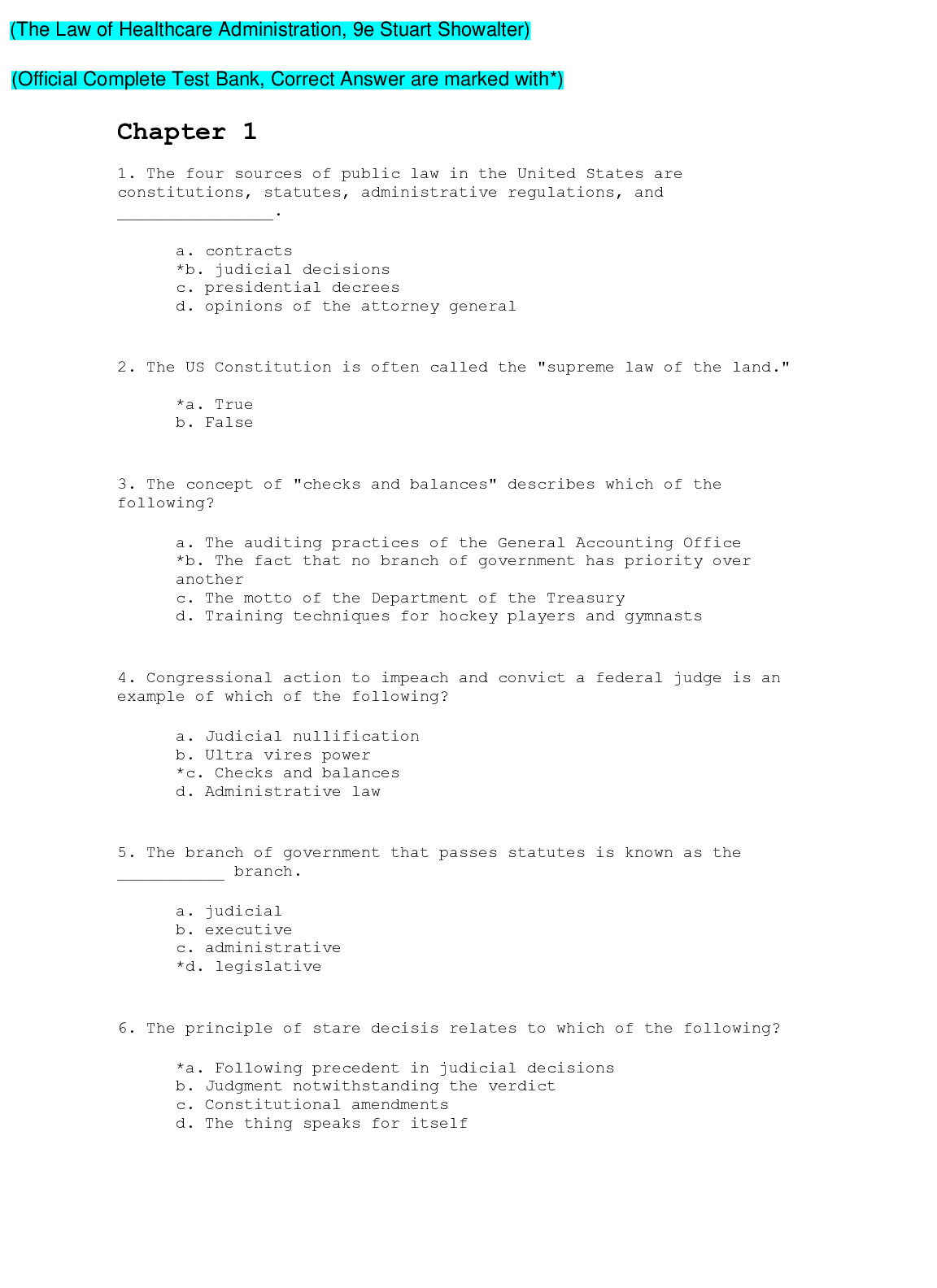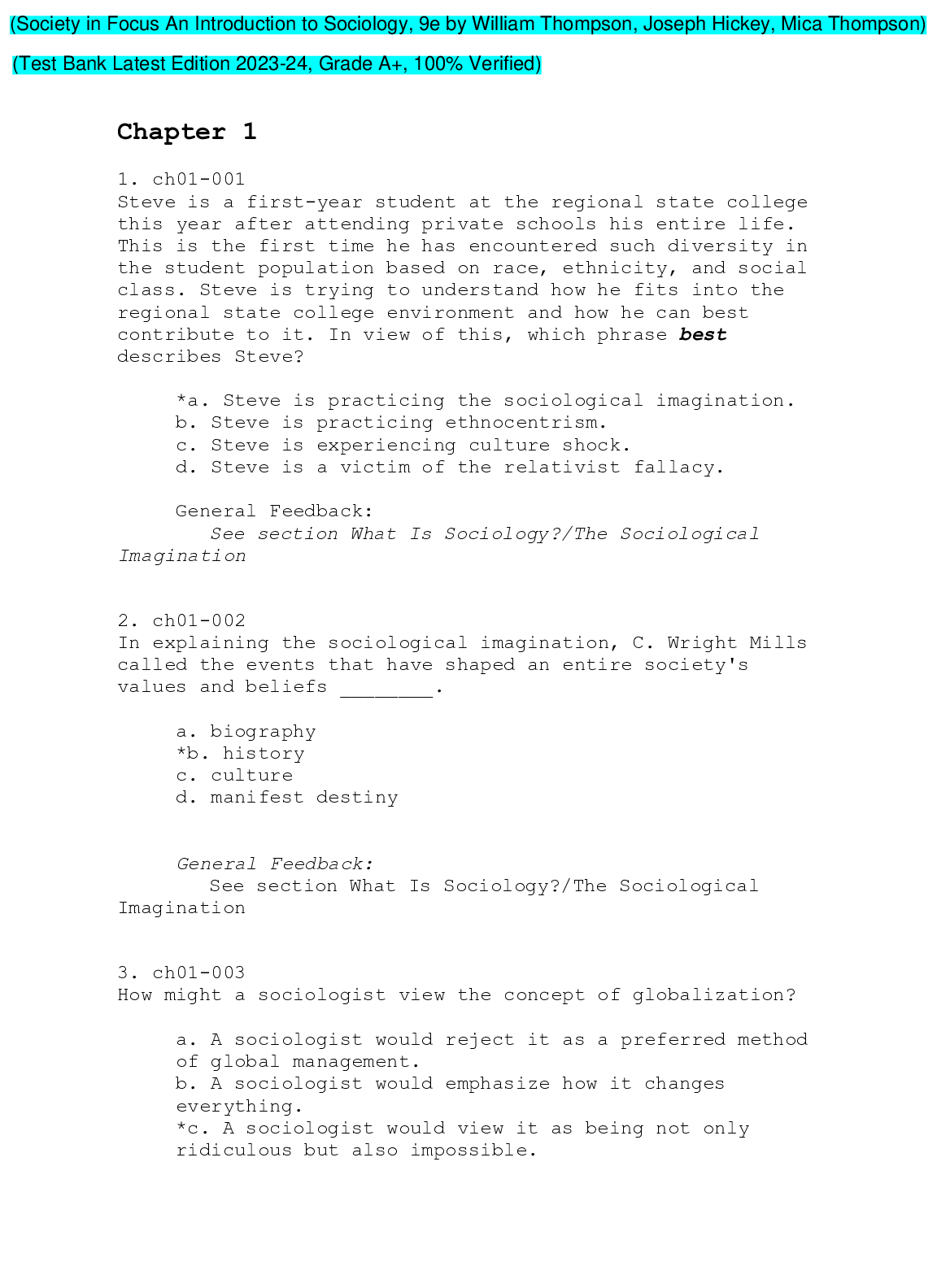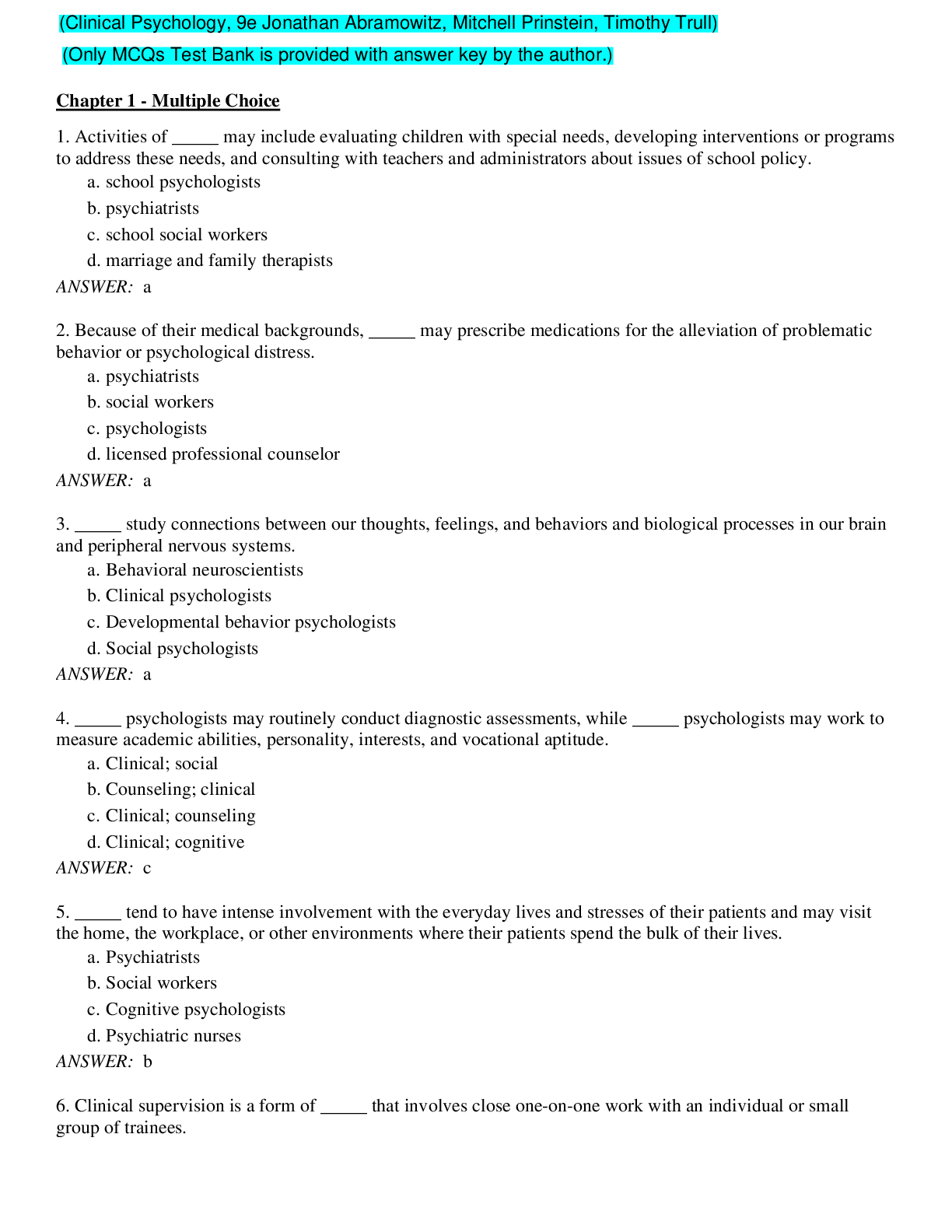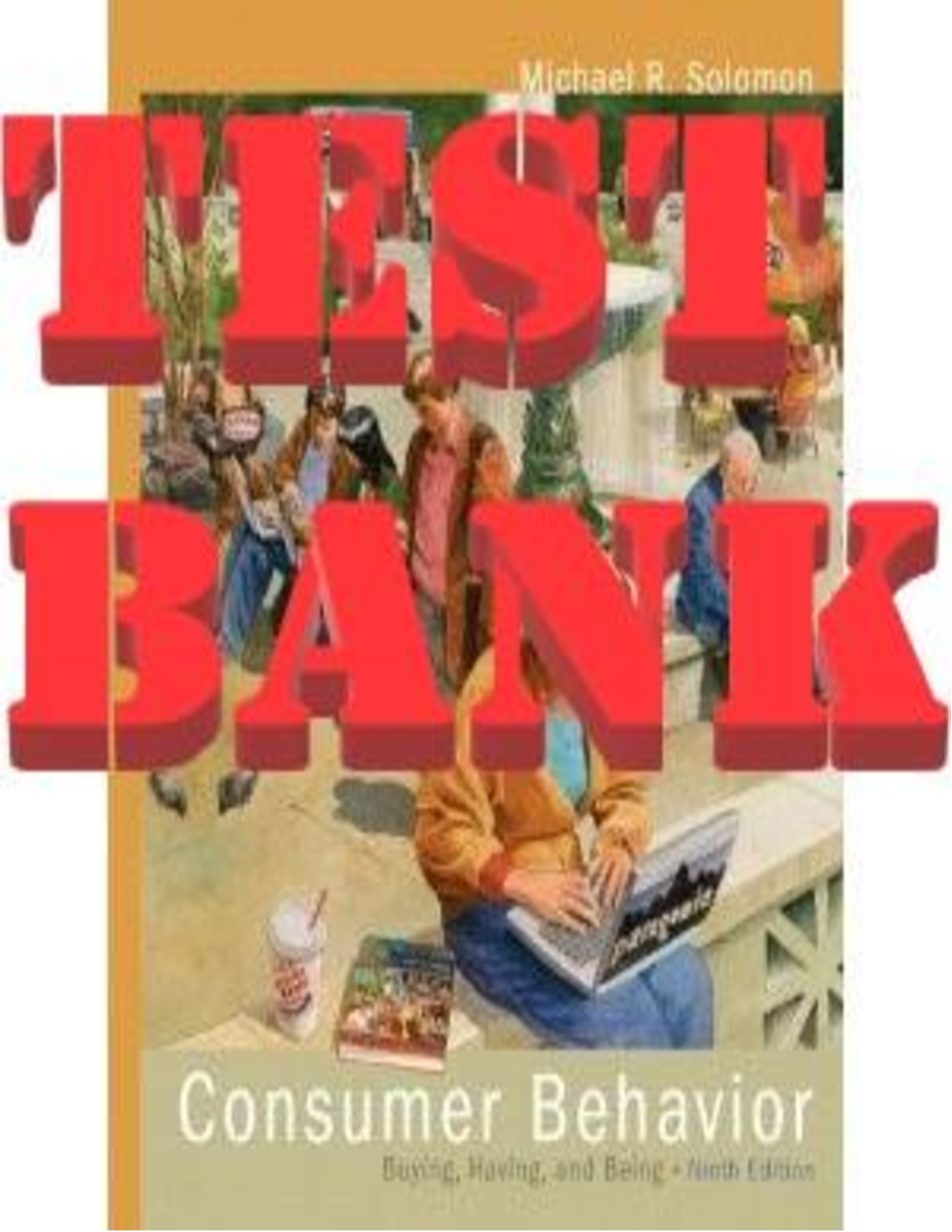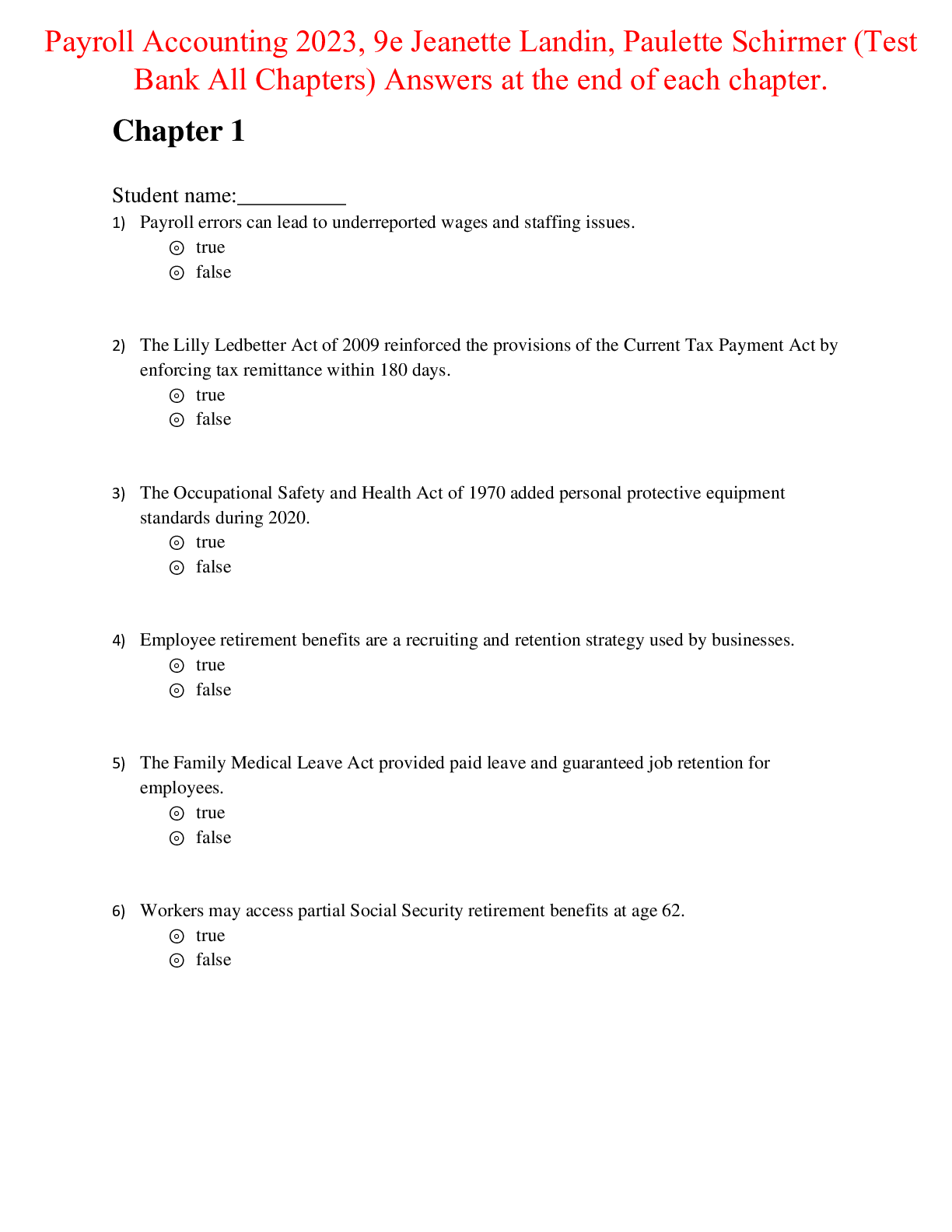*NURSING > TEST BANK > TEST BANK FOR NURSING TODAY TRANSITION AND TRENDS 9TH EDITION BY ZERWEKH (All)
TEST BANK FOR NURSING TODAY TRANSITION AND TRENDS 9TH EDITION BY ZERWEKH
Document Content and Description Below
Chapter 02: Personal Management: Time and Self-Care Strategies MULTIPLE CHOICE 1. Which statement indicates the nurse’s understanding of effective time management? a. “The purpose of effective... time management is to save hours, minutes, and seconds.” b. “The purpose of effective time management is to do as much as possible in as short a time as possible.” c. “The purpose of effective time management is to do as little as possible.” d. “The purpose of effective time management is to achieve personal and professional goals.” ANS: D Making time to meet your individual, family, professional, and career needs and goals is vital to overall success and is the primary purpose of time management. Stating the purpose of effective time management as saving time or doing as much or as little as possible in a short time would not indicate the nurse’s understanding. Procrastinating and doing as little as possible are not characteristic of effective time management. PTS: 1 DIF: Cognitive Level: Application REF: p. 25 OBJ:Identify strategies for self-care.TOP:Time management MSC: NCLEX®: Not applicable 2. A student nurse likes to sleep late and has a high-energy period in the evening. The student resists schedules and prefers to study when it “feels right” and in groups. Which of the following characteristics fit this student? a. Early bird and left-brain dominance c. Owl and left-brain dominance b. Early bird and right-brain dominance d. Owl and right-brain dominance ANS: D The owl does its best work at night, which fits well with the right-brain–dominant person who resists schedules. People with these characteristics choose to do things in their own time and fashion. Early birds tend to do their best work earlier in the day. Left-brain–dominant people process information in a linear, sequential manner, so they would probably prefer a schedule of activities. PTS: 1 DIF: Cognitive Level: Application REF: pp. 26-27 OBJ: Identify your individual time styles. TOP: Time management NURSING TODAY TRANSITION AND TRENDS 9TH EDITION ZERWEKH TEST BANK MSC: NCLEX®: Not applicable 3. In 4 weeks, a student nurse will have two tests and one paper due in the same week. What is the most effective time-management strategy for this student nurse? a. Control time wasters to have more time for studying and writing. b. Delegate everything possible to create more time for studying. c. Schedule specific times on a calendar to study for the tests and to work on the paper during the next 4 weeks. d. Wait to study for the tests and to write the paper the week before they are due because the student nurse “works best under pressure.” ANS: C The most effective approach to this problem would be to schedule specific time periods to prepare for the tests and write the paper. Waiting until the last minute to study and write the paper creates unnecessary stress and sets the student nurse up for failure. Creating more time for studying does not solve the problem; how that time is organized and how it is used is the key. Procrastinating by putting off assignments until the last minute can lead to extreme anxiety and stressful behavior. Although delegating some tasks is realistic and can create time for studying, it is unrealistic to delegate “everything possible.” PTS: 1 DIF: Cognitive Level: Application REF: pp. 27-28 OBJ: Identify personal time management strategies. TOP: Time management MSC: NCLEX®: Not applicable 4. How can the student nurse increase studying efficiency? a. Maintaining a supply of simple carbohydrates for a quick energy spurt b. Alternating mental and physical activities to increase productivity c. Working nonstop without breaks to focus concentration d. Delegating tasks of household chores to family members ANS: B Alternating tasks that are mental with tasks that are physical can increase alertness and create a natural energy spurt to keep going. Carbohydrate-induced energy spurts are short lived and ineffective for studying efficiency. Working nonstop without breaks leads to fatigue and burnout. Although delegating tasks would be helpful to the student nurse, it does not directly increase studying efficiency. PTS: 1 DIF: Cognitive Level: Application REF: p. 27 OBJ: Identify personal time management strategies. TOP: Time management [Show More]
Last updated: 1 year ago
Preview 1 out of 16 pages
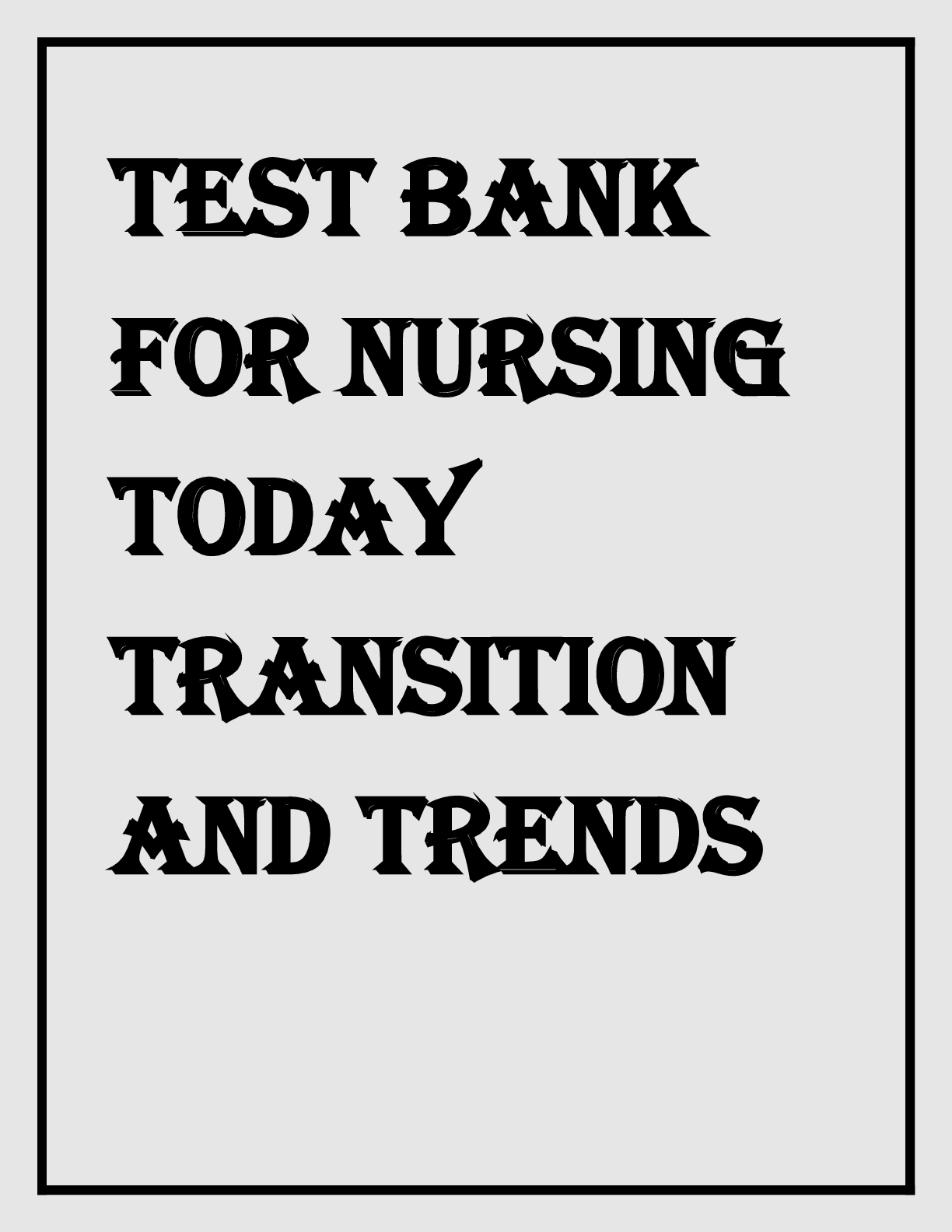
Reviews( 0 )
Document information
Connected school, study & course
About the document
Uploaded On
Dec 29, 2022
Number of pages
16
Written in
Additional information
This document has been written for:
Uploaded
Dec 29, 2022
Downloads
0
Views
45

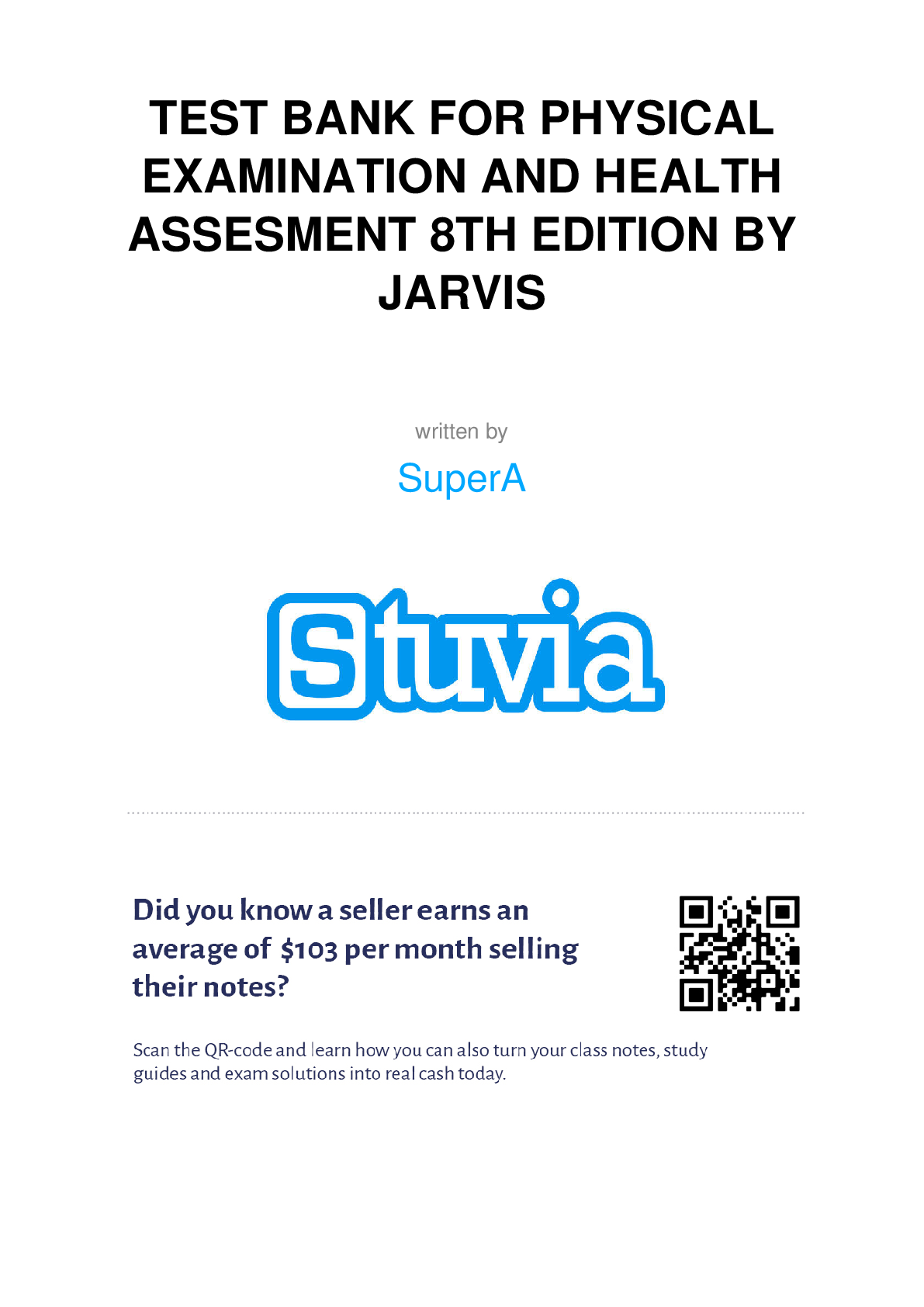
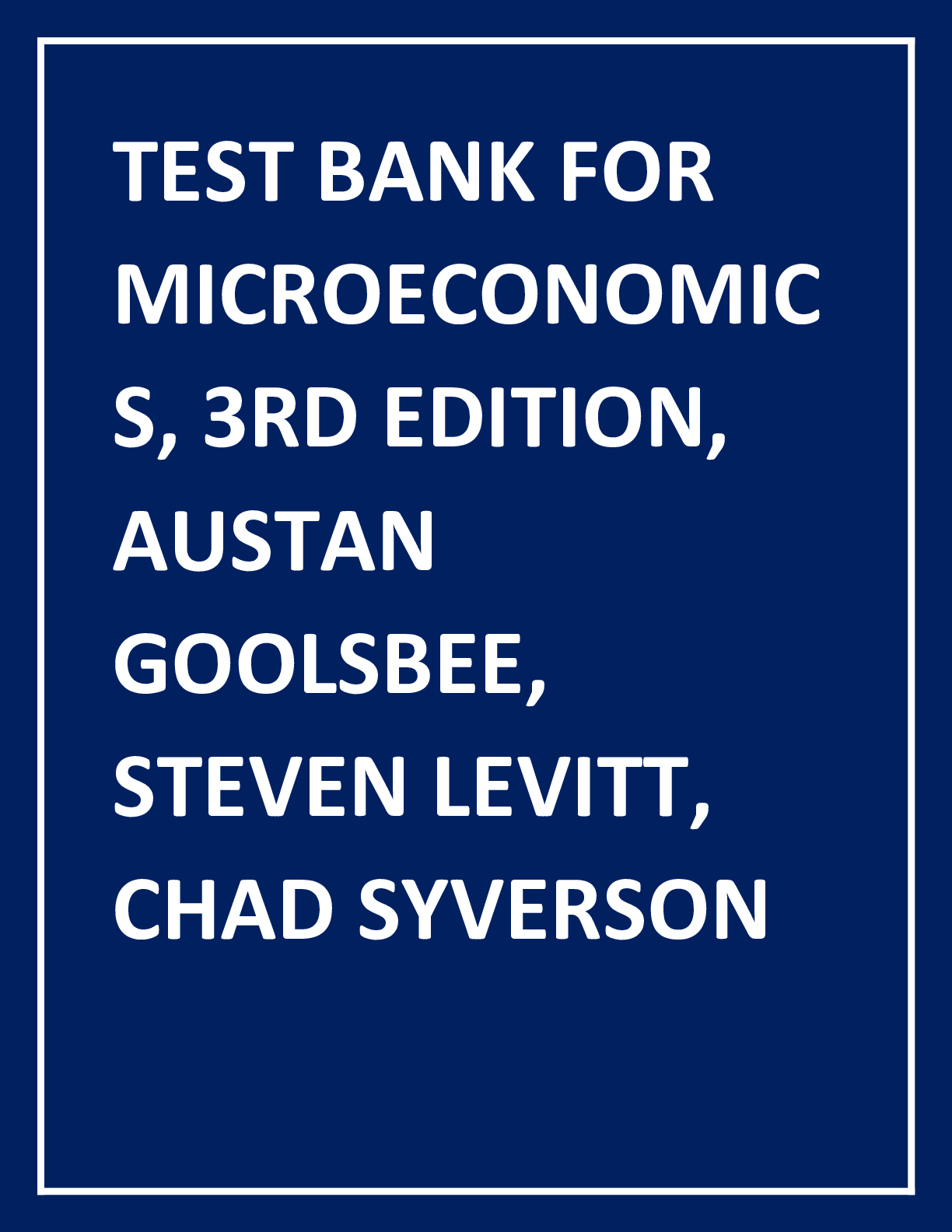
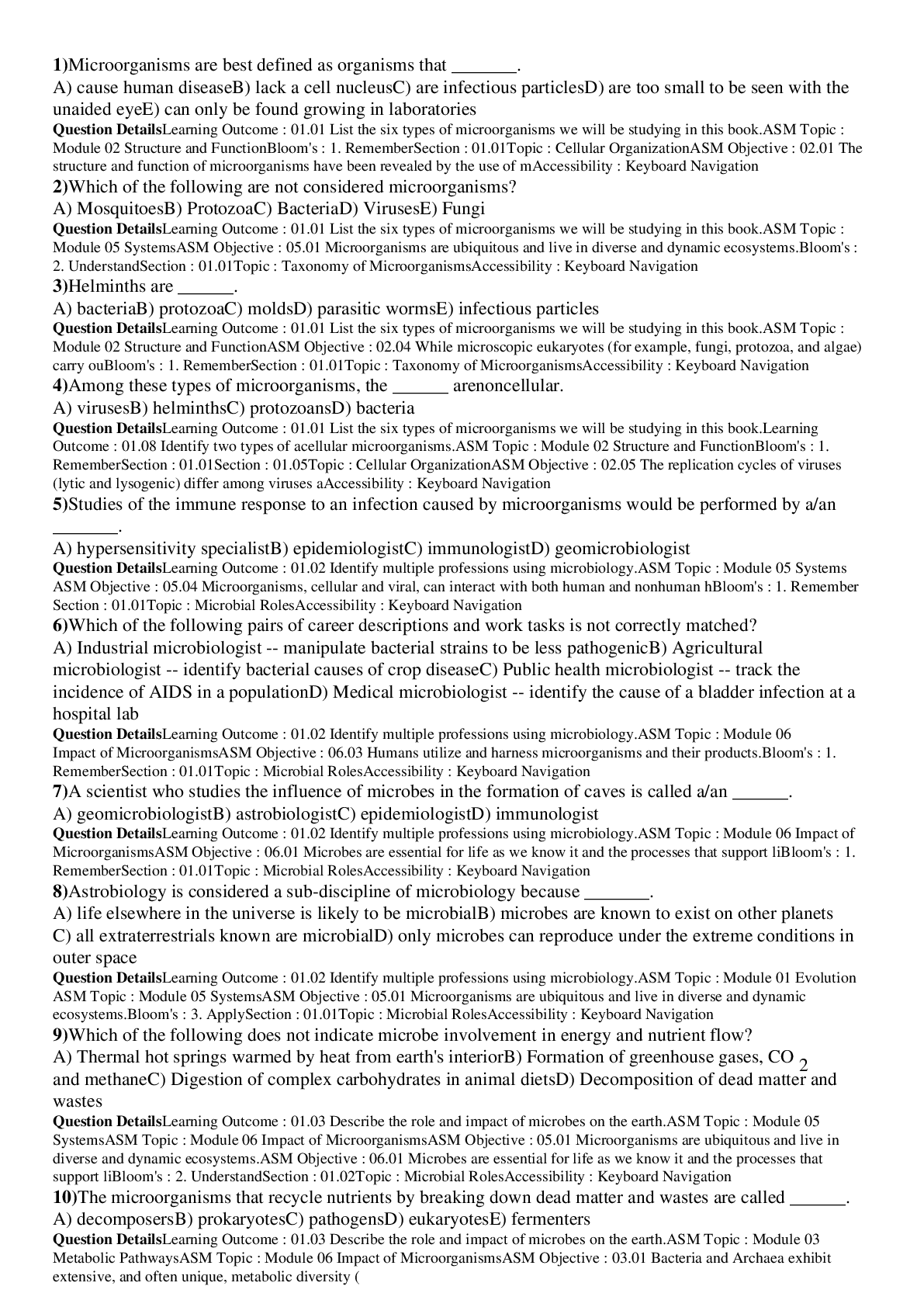
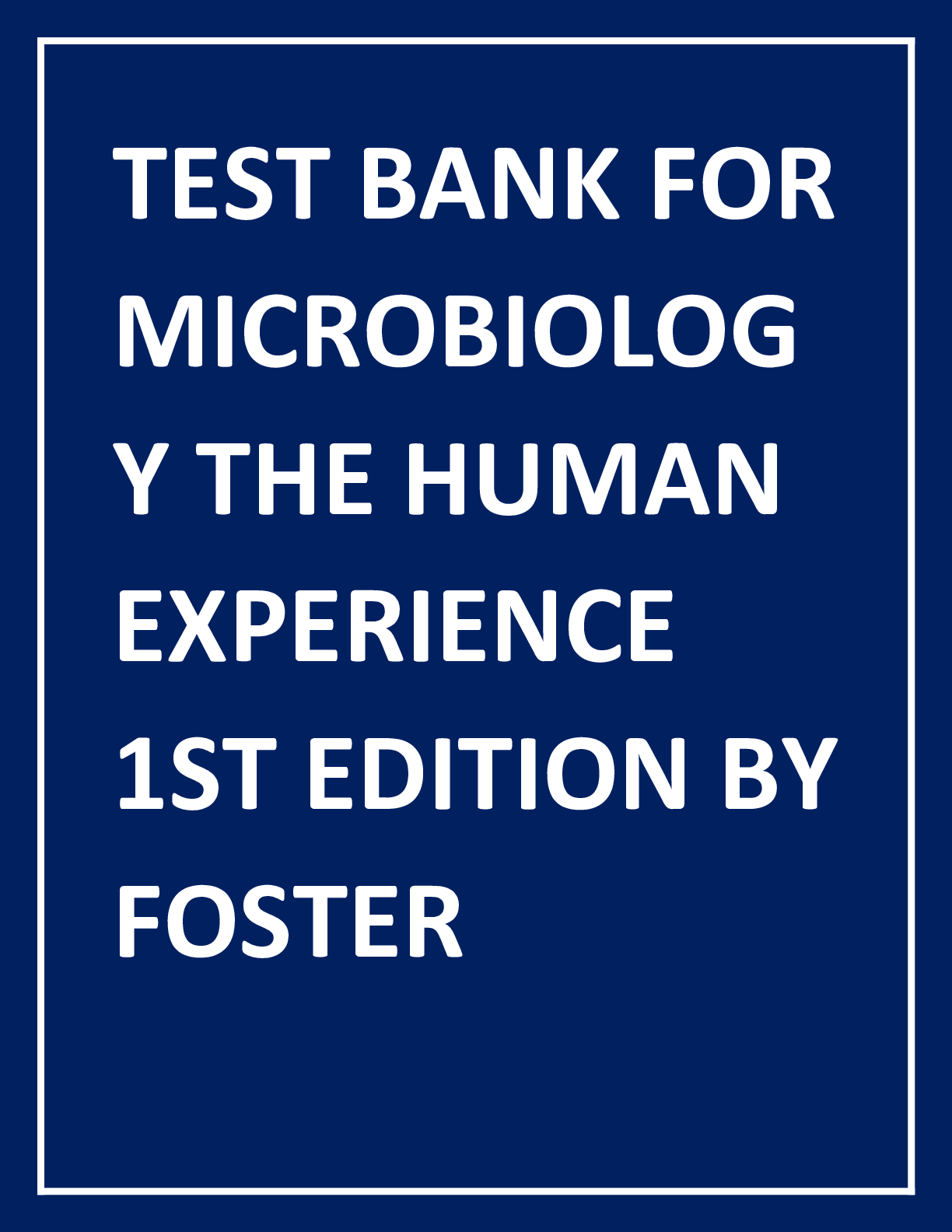
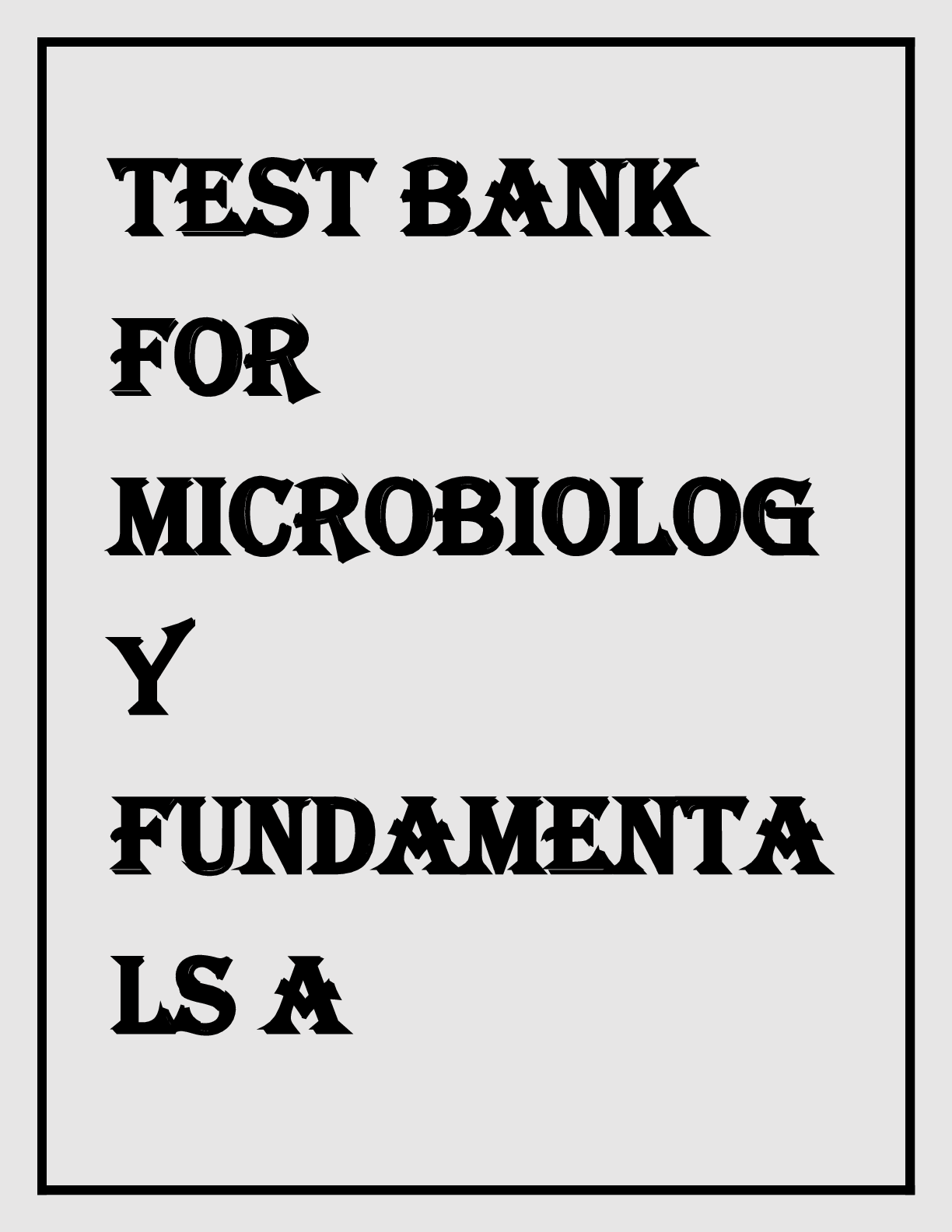
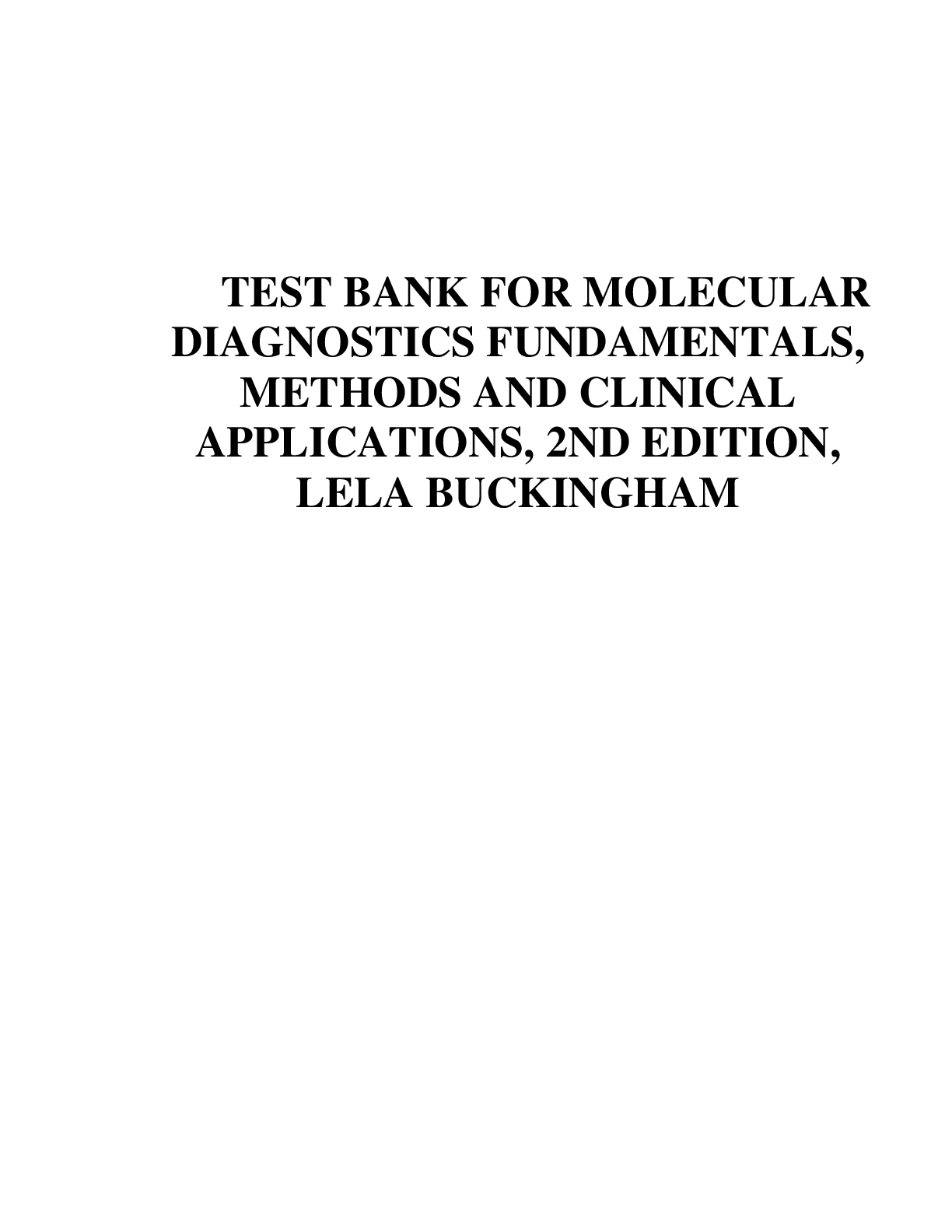
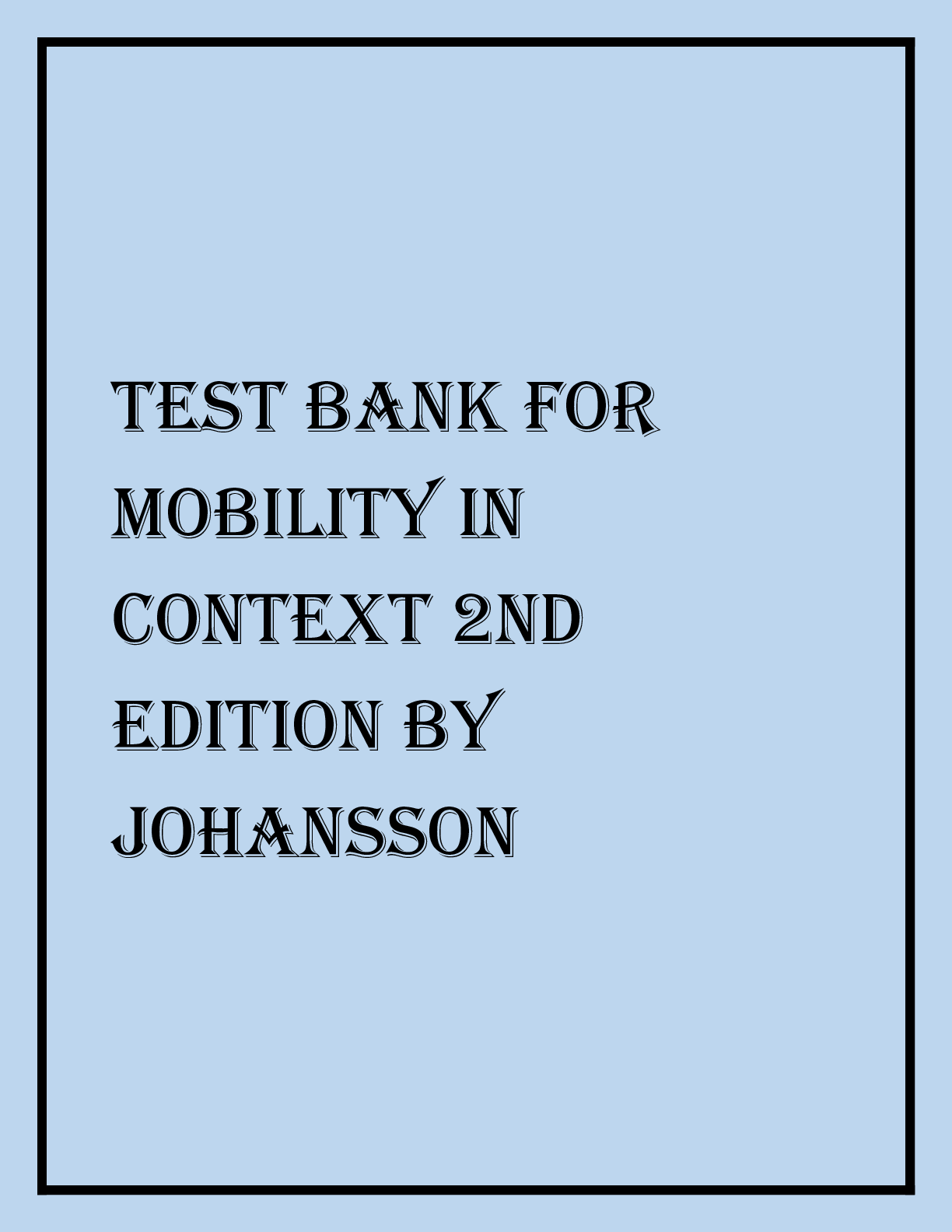
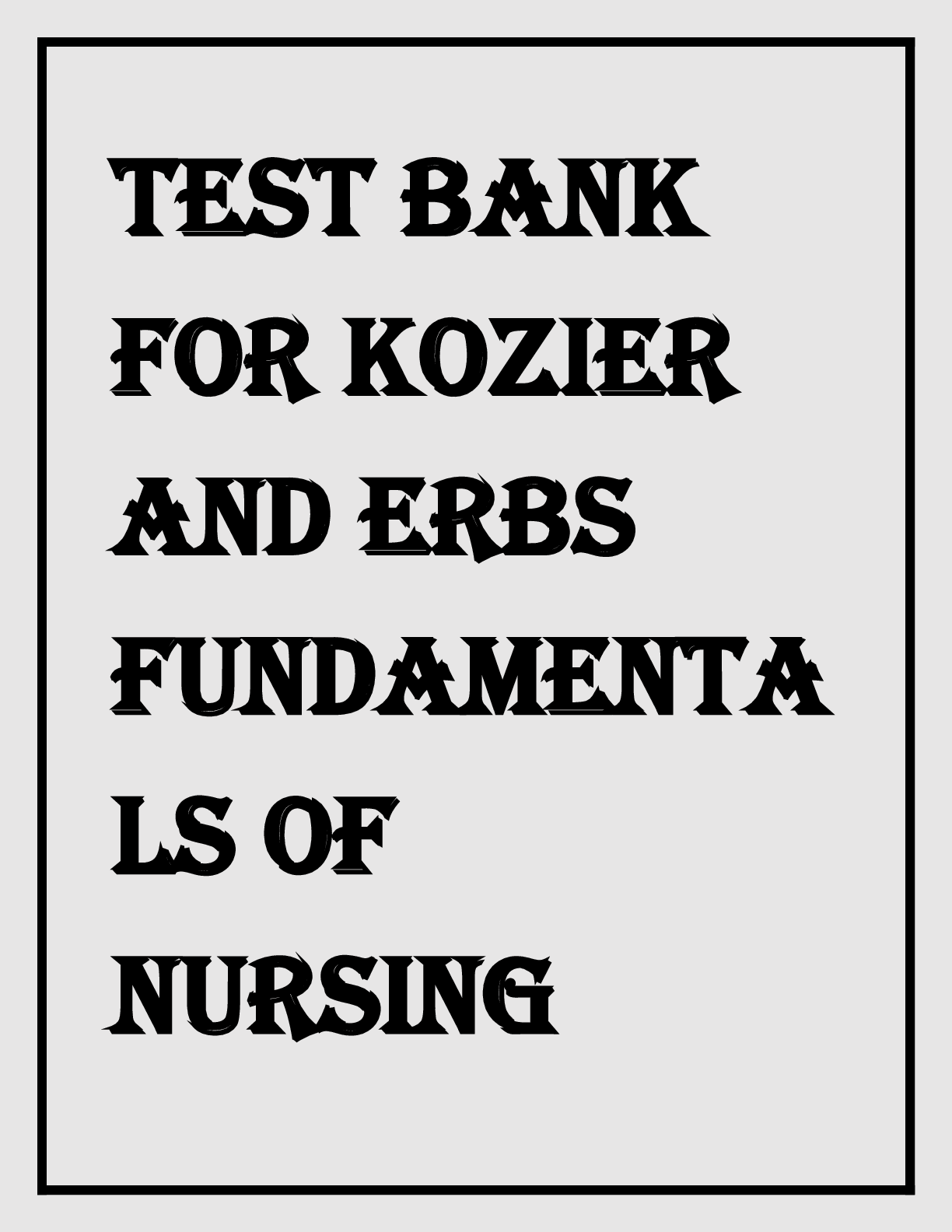

.png)

